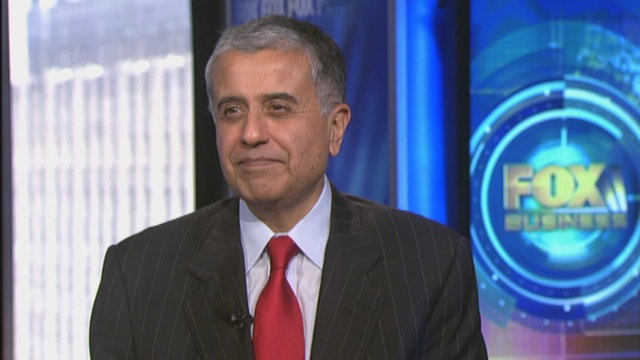Ex-Chairman of Avon: Know When it’s Time for CEO to Go
As the former CEO of a Fortune 500 company, it’s surprising to hear Fred Hassan say small companies have an advantage over the big guys.
“Small companies are much more nimble,” said Hassan, who was CEO of Schering Plough from 2003 until the pharma giant merged with Merck in 2009. “They don’t have much to rely on in terms of resources. The only resource they have in the end is their own culture and capability.”
And for Hassan, workplace culture is key, and he is known for walking the walk.
He ditched his $2 million sign-on bonus at Schering and ate in the cafeteria among his colleagues; and between 2004 and 2008, he turned a $1 billion cash burn into $2 billion in profits. Today, Hassan is partner and managing director with private equity firm Warburg Pincus, a board member at Time Warner Inc. and nonexecutive chairman of Bausch & Lomb Inc.
He says his secret sauce is the ability to “unfreeze attitudes” from the bottom up.
“It’s turnaround basics, and getting a mandate of change from the people,” Hassan says. “Change cannot be forced from the top. Once people have unfrozen their attitudes, you can show them what can happen. The people at the top have to ring true with the rest of the staff, and model the culture you are trying to create.”
And Hassan is no stranger to hot water, as he took over as chairman of the board for a brief period at Avon in late 2012 after longtime CEO Andrea Jung left the post amid an anti-bribery compliance probe. This past April, he resigned from his post as non-executive chairman at the global beauty machine, which is still in litigation over the scandal.
“Avon is turning, it still hasn’t had a turnaround yet,” Hassan says. “What I have learned here is even sharper, in terms of the various indicators that the time has come for a new CEO to step into the company. The big [lesson learned is] that boards need to be very vigilant in detecting and looking for CEOs whose time has come to move on.”
Hassan says his journey of working at these major companies inspired his new book, “Reinvent: A Leader’s Playbook for Serial Success.” And when is it time for a company to reinvent? When the company culture shows signs of strain, he says.
“Cultures have to be strong, vibrant and able to change,” Hassan says. “That’s when you can use culture as a competitive advantage. I think one thing big companies get wrong, is that they start assuming the environment will remain steady and go into cruise control mode. Then a routine change in the environment, or a hungry competitor comes out of nowhere and takes up their profit stream and growth opportunities.”
And all important to growth strategy is the board of directors, Hassan says. Whether it’s a large company with a formal board, or a startup entrepreneur with a personal board of directors, this advisory council is key.
“I personally think there is not a big difference between a small company or big company board,” he says. “I strongly believe board members should be steeped in the business model and strategic issues. Keep them in learning lessons.”




















